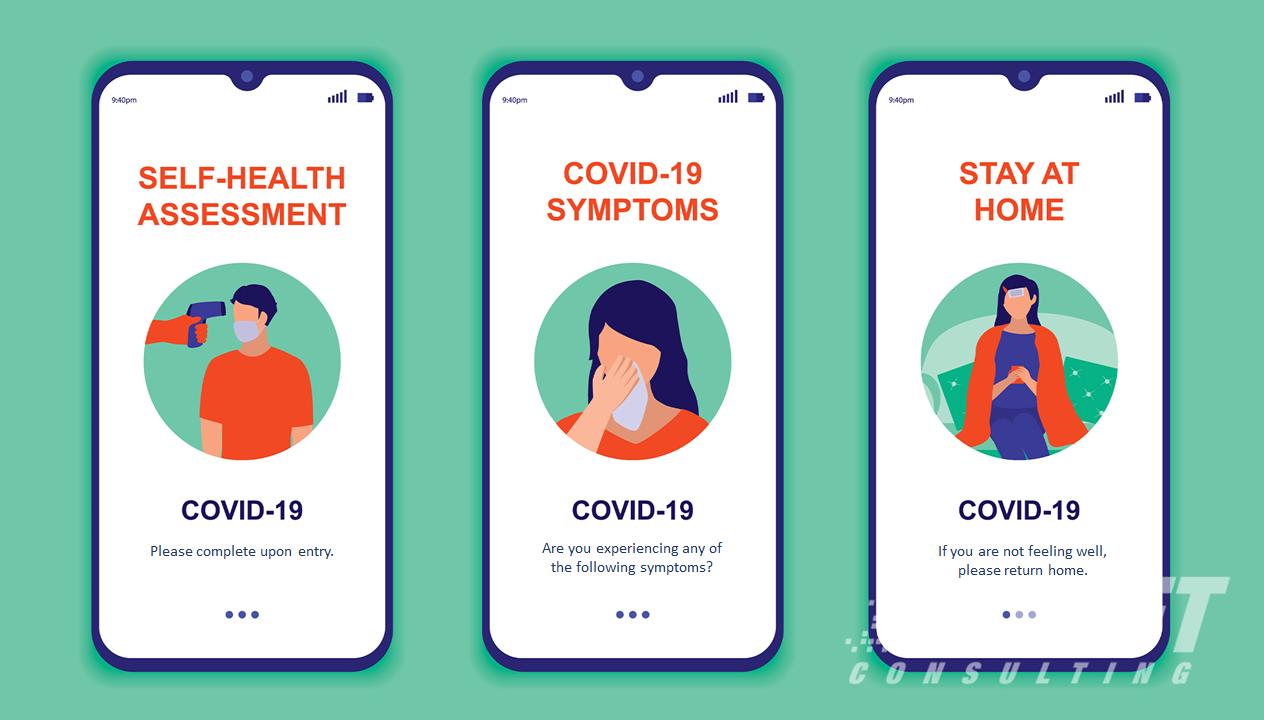A year ago, business leaders never would've considered developing a safety strategy to return to work as a result of a global pandemic. COVID-19 has affected businesses everywhere and led to a large shift in remote work. The thought of returning to physical office locations can cause some hesitancy and concern over the health and safety of employees.
To ensure a smooth and safe return, companies are developing return-to-work strategies and are looking for ways to promote a healthy work environment. In a time where limiting the spread infection is top of mind, self-certification is one of the most popular methods of protecting employee health in the workplace.
How is Self-Certification Facilitated in the Workplace?
Businesses are rolling out policies to keep employees safe. While some focus on hygiene, such as mask wearing mandates or sanitation rules, self-certification focuses on something else - people's word. More and more companies are rolling out policies that require employees to self-certify that they are not experiencing symptoms of COVID-19 or been in contact with someone who has tested or is likely to test positive.
Many of these surveys are conducted digitally via an application that can be completed on an employees mobile phone or desktop upon entering a workplace. If an employee suggests via the survey that they may be exhibiting some symptoms, such as fever or body aches, they could be asked to return home and continue working remotely until symptoms subside. This is a common practice recommended by the CDC to help reduce possible risk of spreading the virus.

Concerns Over Survey Effectiveness
There are unfortunately some downsides to solely relying on self-certifications. Though it is important to integrate into the workplace, businesses often choose this method in combination with other protocols, such as temperature checks.
Self-certifications can be more prone to judgement errors. For example, let's take body aches - a symptom of COVID-19. An employee may attribute those symptoms to a recent workout, causing them to check off the box that says "no, I have not experienced body aches" in their self-certification survey. In reality, those aches could be a sign of the virus. They could also mark "no" when asked if they've experienced a recent fever, without actually knowing if they've had one or not. In this situation, technology like thermal scanning can be integrated with the survey to detect high temperatures.
There is always the concern that someone could have the COVID-19 virus but not exhibit any symptoms. While cases cannot be fully detected without a legitimate medical test, self-certifications are meant to be another preventative measure to try and eliminate as many possibilities of spreading infection in the workplace.
Self-Certification is Here to Stay
Self-certification surveys are an easy option for businesses to adapt to help prevent spread of infection. With a self-certified survey, businesses can be fully aware of symptoms someone may have and determine if that person should be sent home. Integrating the survey with computer vision for contact tracing can also help determine who someone with symptoms had been in contact with in the workplace so those at risk can be properly informed.
A recent Slate article states that as parts of the U.S. attempt to return to business as usual, these self-certifications may move beyond just the workplace. "With few national guidelines about safe behavior right now, it might become more common to see policies requiring people to declare they’re COVID-free before they can enter or willing to abide by that institution’s Coronavirus policies."
















